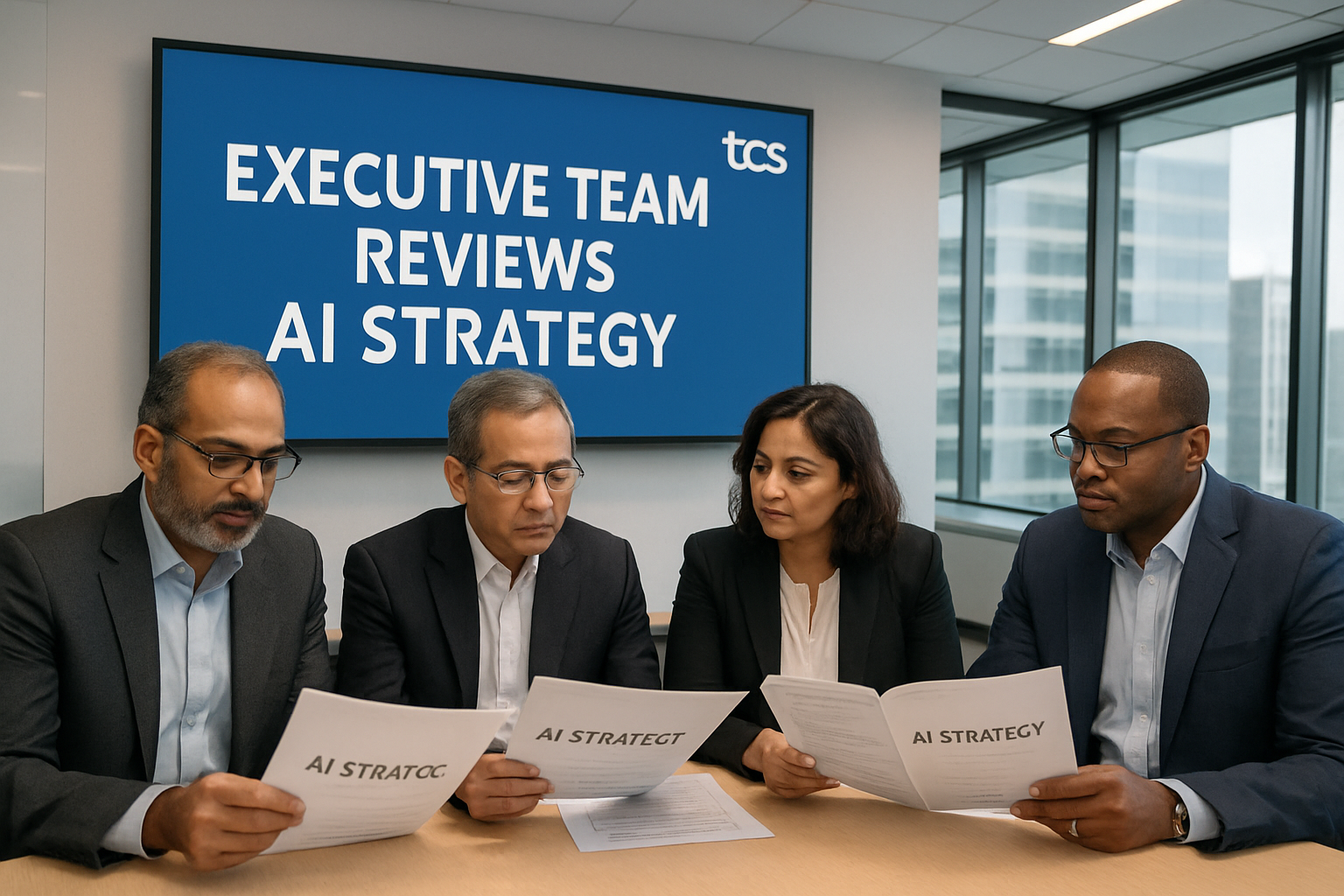Quick Take
- TCS becomes first major Indian IT firm with dedicated AI business unit starting September 2025
- India’s $283B IT outsourcing sector faces cost pressures and weakened traditional spending
- 93% of Indian corporations plan increased AI investment by 2025 per industry surveys
- New unit led by 20-year TCS veteran Amit Kapur consolidates existing AI capabilities
- Workforce reduction of 12,000 employees (2%) planned for fiscal 2026
Tata Consultancy Services launches dedicated AI unit as industry surveys show 93% of corporations boosting investment amid traditional IT spending decline across India’s outsourcing sector.
Market Pressure Drives Strategic Pivot
Tata Consultancy Services (TCS), India’s largest IT services provider, announced the creation of a dedicated Artificial Intelligence and Services Transformation Unit, making it the first major Indian IT company to form an exclusive AI business unit.
The timing reflects urgent market realities. India’s $283 billion IT outsourcing sector faces pressure from global economic uncertainties and restrained client spending. Traditional IT spending has weakened as companies cut costs and delay expansion plans.
Leadership Focus on AI Transformation
Amit Kapur, a TCS veteran with over 20 years of experience, will lead the new unit starting September 1, 2025. Kapur previously managed TCS’s UK and Ireland business, bringing international operations expertise to the AI transformation initiative.
This announcement indicates much more investment and senior management focus is now being given to the AI transformation challenge,
said Peter Bendor-Samuel, CEO of Everest Group.
The move positions TCS to compete directly with global rivals like Accenture, which launched a similar AI unit earlier this year.
Growing Corporate AI Adoption
The restructuring aligns with surging market momentum. Surveys indicate 93% of Indian corporations plan to increase AI investments by 2025. Nearly 90% have already launched more than 10 AI pilot projects in 2024.
Industry analyst Pareekh Jain describes AI transformation as the only major lever for growth amid current market weakness. For TCS, this reorganization represents both opportunity and survival strategy as AI threatens to automate tasks once handled by large IT teams.
Partnership Strategy Over Acquisitions
TCS reflects the measured approach of Indian IT companies toward AI expansion. Unlike global competitors pursuing expensive acquisitions, Indian firms prefer partnerships. In 2024 alone, Indian companies engaged in 46 AI-related partnerships with cloud service providers and startups.
This collaboration model helps scale AI offerings without significant financial burden while enabling access to cutting-edge capabilities.
Workforce Transformation Reality
The AI focus comes alongside workforce adjustments. TCS announced plans to reduce its workforce by approximately 2%, about 12,000 employees, in fiscal year 2026. The company aims to become more agile in an era of AI-led business transformation.
This restructuring highlights broader industry tensions between AI efficiency gains and traditional employment models that have defined Indian IT services for decades.
Operational Integration Strategy
The AI and Services Transformation Unit will consolidate TCS’s existing AI teams and collaborate with other service units and industry groups to enhance AI delivery. The structure aims to scale impact and enable benefit realization at the client level.
TCS plans to leverage its Pace Ports global innovation centers to co-create and showcase AI solutions with clients. The focus extends beyond technology to encompass AI-powered integrated services across operations, engineering, and modernization.
Industry Evolution Signal
TCS’s transformation signals broader industry evolution from traditional outsourcing to AI-enhanced continuous services. Companies delaying AI integration risk competitive disadvantage as automation reshapes service delivery models fundamentally.
For clients, consolidated AI capabilities mean access to deeper domain expertise and accelerated innovation cycles. The success of this strategy will influence how other Indian IT firms approach AI transformation as global demand for AI services accelerates.




